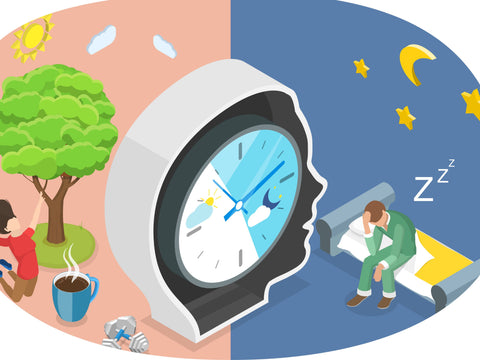Melatonin is a hormone that plays a crucial role in regulating our sleep-wake cycle. It helps control our body's internal clock and promotes a deeper and more restful sleep. However, certain factors can reduce melatonin production, leading to disrupted sleep patterns and potentially affecting our overall health and well-being.
One significant factor that can reduce melatonin production is exposure to bright artificial light, particularly in the evening before bedtime. The blue light emitted by electronic devices such as smartphones, tablets, and computers can inhibit the release of melatonin. This disruption of melatonin production can make it harder to fall asleep and achieve a good quality sleep. Therefore, it is advisable to limit the use of electronic devices at least an hour before bed or employ blue light filters to minimize the impact on melatonin production.
Another factor that can decrease melatonin production is irregular sleep schedules. Our bodies have an internal clock, known as the circadian rhythm, that relies on consistent sleep and wake times to regulate melatonin release effectively. When we disrupt this rhythm by frequently changing our sleep patterns, such as inconsistent bedtimes or irregular sleep durations, our melatonin production can be negatively affected. To enhance melatonin production, it is crucial to establish a consistent sleep schedule, even on weekends or during holidays.
Certain medications can also suppress melatonin production. Stimulants like caffeine and nicotine have been shown to reduce melatonin levels, making it harder to fall asleep. It is advisable to avoid consuming these substances, especially in the evening, as they can affect not only the onset of sleep but also the overall quality of sleep.
Additionally, exposure to excessive noise or a loud environment can also disrupt melatonin production. Achieving a quiet and peaceful environment is essential for optimizing melatonin release. If you find yourself in a noisy setting, consider using earplugs or employing white noise machines to drown out disturbing sounds and aid melatonin production.
Finally, high levels of stress and anxiety can have a detrimental effect on melatonin production. When we experience chronic stress, our bodies produce more cortisol, a hormone that can hinder melatonin synthesis. Practicing relaxation techniques, such as deep breathing exercises, meditation, or engaging in physical activities, can help reduce stress levels and promote healthy melatonin production.
There are several factors that can reduce melatonin production, including exposure to bright artificial light, irregular sleep schedules, certain medications, excessive noise, and high levels of stress. By being mindful of these factors and making adjustments to our lifestyles, we can optimize melatonin production and achieve a better night's rest. Prioritizing a dark and quiet sleep environment, establishing a consistent sleep schedule, limiting exposure to stimulating substances, and managing stress effectively are all crucial steps in ensuring healthier melatonin levels and a more restful sleep.
Article By: Heather Campa, Wyoming Wildflower



